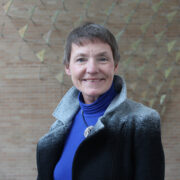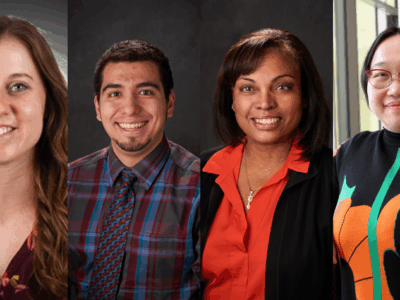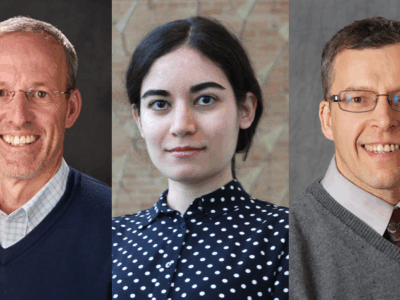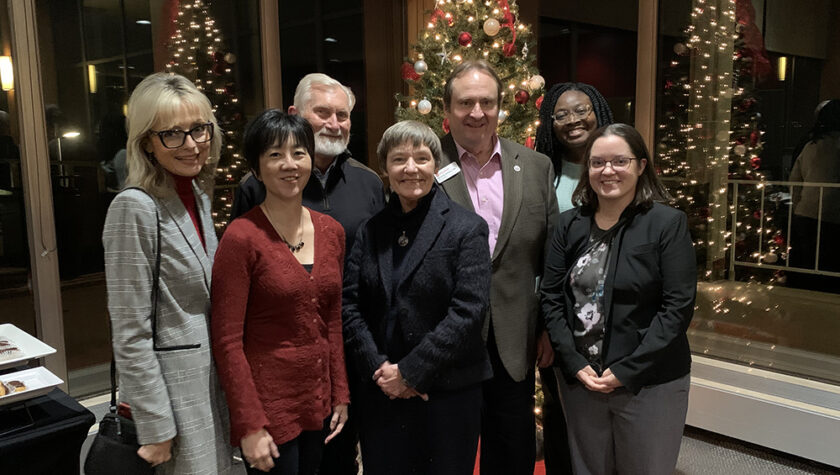
8
March

Sorkness is honored for her sustained contributions to exceptional and inclusive mentorship
By Logan Underwood
Christine Sorkness grew up in a small town in central New York surrounded by a community of immigrant families. Displaced from their home in Eastern Europe, Sorkness’ grandparents made the journey to the United States. They were the beginning of a long line of mentorship in Sorkness’ life.
“I consider my grandparents as the first of my mentors,” says Sorkness, now a professor in the University of Wisconsin–Madison School of Pharmacy’s Pharmacy Practice and Translational Research Division. “They arrived here to build a different life and insisted that their kids and their grandkids get a higher education.”
After being nominated by two dozen professors, researchers, and mentees from across several departments of the University, Sorkness is being recognized for her own contributions to mentorship. She is the most recent recipient of the UW Slesinger Award for Excellence in Mentoring, named after accomplished UW alum Doris Peyser Slesinger, which honors mentors who help these underrepresented faculty groups excel in their careers
“As a mentor, she is outstanding. As a human being, she is outstanding. As a friend, she is outstanding.”
—Award nominators
This award has recognized phenomenal mentors of women, non-binary, and transgender faculty within UW–Madison for over two decades.
“As a mentor, she is outstanding. As a human being, she is outstanding. As a friend, she is outstanding,” reads the letter to the Slesinger Award Selection Committee from Sorkness’ nominators.
‘Everyone deserves a mentor’
Sorkness had an interest in pharmacy and medicine at an early age. She started working at a community pharmacy in her hometown during high school, where the men who owned the community pharmacy became some of her own earliest mentors.
“They were inspiring me about what pharmacists should be,” Sorkness says, “caring about people, and treating everyone with value and respect.”
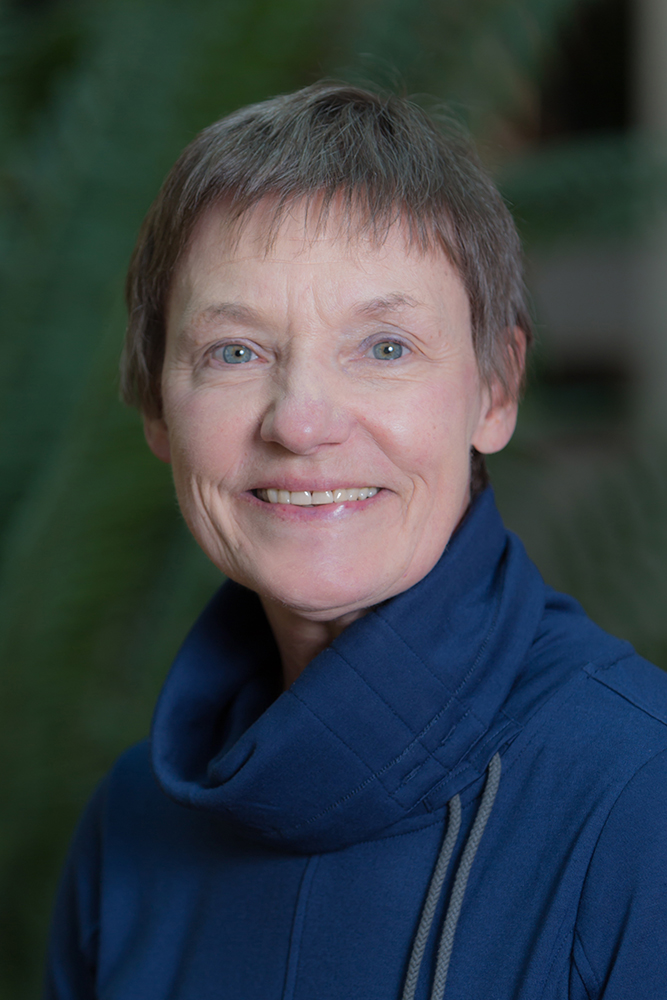
Sorkness earned her pharmacy degree from the University at Buffalo in New York. After graduating, she quickly became intrigued by research and collaborated with scientists in early clinical trials for Parkinson’s disease. In 1979, she was recruited to become faculty of the UW–Madison School of Pharmacy to help develop ambulatory care practices.
After meeting several passionate clinicians in the field, Sorkness specialized in clinical practice and research for patients with asthma. After these mentors engaged Sorkness in multicenter trials for improving asthma care, she began to realize the power of mentorship.
“Early on, I made a decision that everyone deserves mentors,” Sorkness says. “They helped make me who I am, and they helped make my career in pharmacy and as a scientist very valuable.”
Sorkness was eager to develop skills to become an effective mentor. After talking with leaders across UW–Madison, and particularly through collaborating with the School of Education, Sorkness learned more about the intricacies of mentorship.
“It’s a science in its own right,” Sorkness says.
As senior associate executive director of the UW Institute for Clinical and Translational Research (ICTR), Sorkness is helping implement mentorship training initiatives across campus.
Sorkness looked to improve on the old-fashioned “see one, do one, teach one” method of learning. As pharmacy often involves working with an interdisciplinary team of specialized individuals, Sorkness worked to emphasize the importance of considering a behavioral, social, and psychological approach to mentorship.
“They were inspiring me about what pharmacists should be — caring about people, and treating everyone with value and respect.”
—Christine Sorkness
Along with colleagues at UW ICTR, Sorkness began to develop introductory mentor and mentee curricula, focused on teaching mentors to learn more about the backgrounds, concerns, and passions of the people they work with.
“One of the things that our training does is to get clinicians and scientists in the biomedical research workforce to be more comfortable with some of the touchy, feely stuff,” says Sorkness.
Inclusive excellence
For Sorkness, who is also on the leadership team for the National Research Mentoring Network’s (NRMN) Mentor Training Core, it is hard to overstate the value of a mentor.
“It’s a way of making sure that all individuals feel valued, that their own self-efficacy and self-esteem, whether as a health professional or as a scientist, are obtained and enhanced,” says Sorkness.
Sorkness acknowledges mentorship as one of the most important factors in changing one’s career. Consistently, she has seen a mentor’s guidance promote success and connect young faculty with new opportunities.
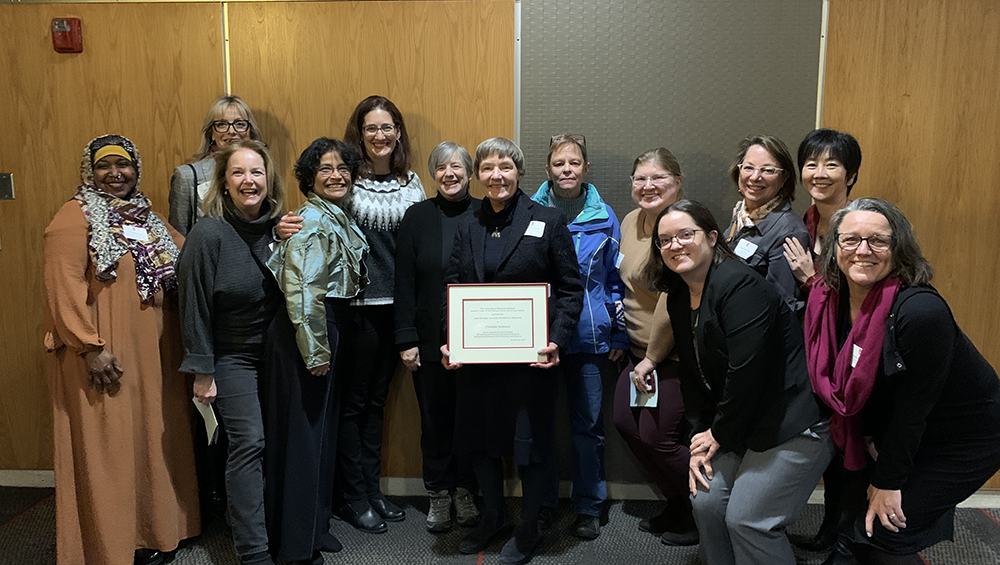
This passion for mentorship comes from more than its practical effects; for Sorkness, it is a personal mission. In her early days at a community pharmacy, the only pharmacists she worked with were white men.
“Women are disproportionately not receiving mentorship; they’re not having advocates,” she says. “It’s even more so for individuals from minority or ethnic groups, or those that are considered underrepresented in medicine.”
By mentoring faculty from a variety of different backgrounds and supporting the development and ongoing work of the National Institutes of Health-funded NRMN, Sorkness has learned how to appreciate cultural differences and discover the similarities from her own background. She has found that coming from a family of immigrants has helped her connect to many of her mentees.
“If you start making yourself available and communicating with people who are different, you find that people are really hungry for someone to reach out, listen, and respect them.”
Sorkness believes it is the simple things that make a mentor truly valuable: listening, aligning expectations, communicating, and empowering the mentees to make connections.
A heartwarming achievement
While her expertise in mentorship is clear, it is her ability to make connections and build relationships that made Sorkness a perfect candidate for the Slesinger Award.
Organized by Michelle Chui, professor in the School’s Social and Administrative Sciences Division, several of the nominators compiled a package of support letters highlighting the impact that Sorkness has made at the University of Wisconsin–Madison. Chui, one of Sorkness’ mentees, felt inspired to nominate Sorkness for the award because of the consistent support she has given her throughout her career.
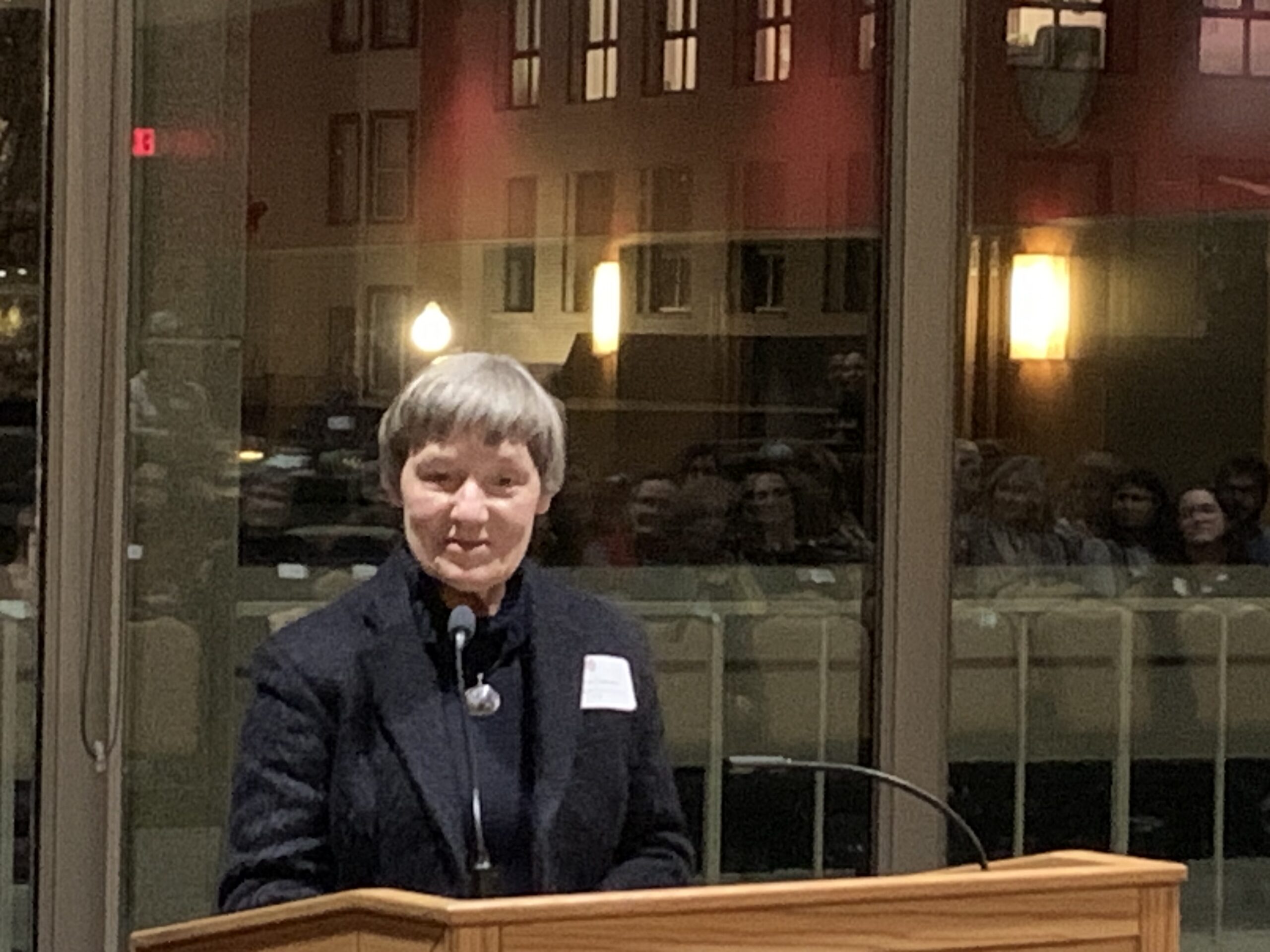
“I never in my wildest dreams thought I could successfully compete for a federal-level grant, but her reassurance (and direct feedback) has now led to several federal grants, and now I’m mentoring others in the same process in my roles as director of the Sonderegger Research for Improved Medication Outcomes and co-director of ICTR’s Collaborative Center for Health Equity,” says Chui. “But I’m not the only one that she cares about. She makes incredible impacts on others as well, particularly those from underrepresented groups.”
The award has given Sorkness an opportunity to reflect on the connections she has made throughout her esteemed career. Past mentors have now become colleagues and collaborators. Some mentees still keep in close contact with Sorkness. Others built brief connections before moving on to new directions in their career. Sorkness is simply happy to make a difference in mentees’ careers and lives, no matter how fleeting or small.
“There are certain things in life that you find are important to you that sometimes you don’t recognize,” Sorkness says. “Just the opportunity to share these relationships is very touching.”


